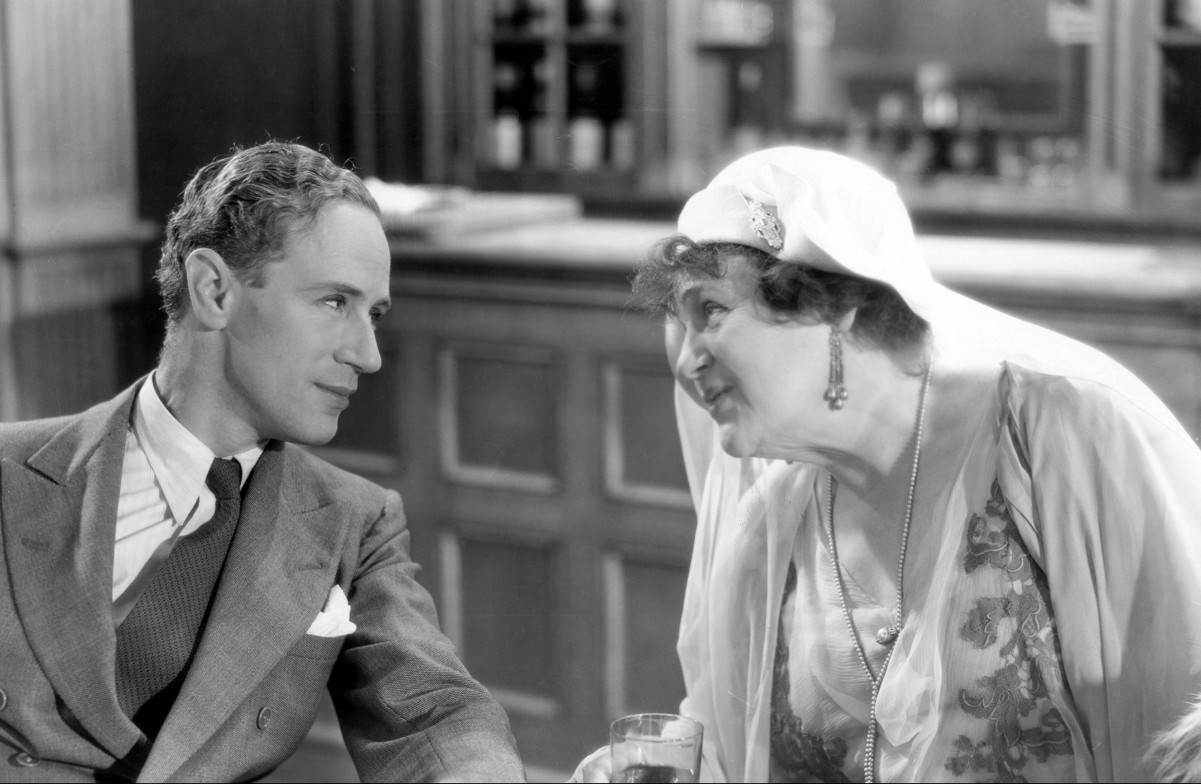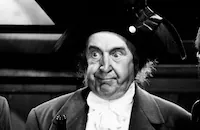Outward Bound

Brief Synopsis
Cast & Crew
Robert Milton
Leslie Howard
Douglas Fairbanks
Helen Chandler
Beryl Mercer
Alec B. Francis
Film Details
Technical Specs

Synopsis
Ann and Henry, a young English couple, facing an impossible love affair, find they cannot live without each other. They board an ocean liner through a dense fog, where they encounter Tom Prior, a prodigal son; his mother, Mrs. Midget, whose identity the son does not know; Mrs. Cliveden-Banks, an affected socialite; a clergyman who is keen about his missionary work in the London slums; Mr. Lingley, a captain of industry; and the steward, Scrubby. Gradually, Tom realizes that the passengers are unaware of their destinations with the exception of the lovers, and that they are all "half-way" persons who have committed suicide. Arriving at their destination, they are all judged by the Examiner. On the return voyage, Henry is saved from asphyxiation by his dog breaking a window pane; he returns to the phantom ship long enough to retrieve Ann, and together they are rescued by an ambulance.

Director
Robert Milton
Cast

Leslie Howard

Douglas Fairbanks

Helen Chandler
Beryl Mercer

Alec B. Francis

Alison Skipworth
Lionel Watts

Montagu Love

Dudley Digges
Crew

Film Details
Technical Specs

Articles
Outward Bound
The 1924 Broadway production was directed by Robert Milton, who also directed the film. The cast included Alfred Lunt as Prior, Leslie Howard as Henry, Beryl Mercer as Mrs. Midget and Dudley Digges as the Examiner. (Mercer and Digges reprised their roles in the film.) John Cobbin, a reviewer for the New York Times, wrote that the play "caught the attention of a New York audience, enlisted its sympathy, amused it genuinely and genially, and ended by stirring it to very considerable depths of human pity and mortal terror." In particular, Cobbin praised Mercer as Mrs. Midget, saying that she "has never been more seraphically maternal, more racily human." He also singled out both Leslie Howard and Margolo Gillmore for their performances as the young couple left in limbo due to their suicide pact. For the film version Howard played the older character of Prior, perhaps because he had aged several years in the interim.
In fact, Outward Bound was not Howard's actual film debut; he had appeared in several English silent films between 1914 and 1921, before his stage career took off. His first great critical success in New York was the Frederick Lonsdale comedy Aren't We All? (1923), which had an extended run despite opening in the off season. The stage version of Outward Bound drew him enough fame that the New York Times even published an article by him in 1924 about his experiences touring the play. He recalled that when he arrived at a "certain slightly Southern city," a Mrs. Brown called him up and invited him to have dinner at her house before her family and friends attended the play. Some of the attendees were apparently baffled by the plot; one of them said afterward, "I like that bit where you all find out you're in a ship at the bottom of the sea."
By the late Twenties, Howard had earned the reputation of "the foremost young actor on the English-speaking stage," as one critic put it, thanks to his work in plays such as Candle Light (1929) and Berkeley Square (1929). Around that time his stage manager George Fogel inquired about getting Howard parts in the movies, but he learned that Howard had already signed a contract with Louis B. Mayer at M-G-M. No film projects came of it at first, but now that Howard had established a formidable reputation as a stage actor, Hollywood took much greater interest. He received a salary of five thousand dollars a week. All the while he maintained a skeptical view of Hollywood, writing: "Any entertainment which removes the actor from direct contact with his audience is surely like producing babies in test tubes--doubtless an efficient and hygienic process, but one which must be highly unsatisfying to the parents."
Director: Robert Milton
Script: J. Grubb Alexander, based on the play by Sutton Vane
Photography: Hal Mohr
Film Editor: Ralph Dawson
Costumes: Earl Luick
Cast: Leslie Howard (Tom Prior); Douglas Fairbanks, Jr. (Henry); Beryl Mercer (Mrs. Midget); Dudley Digges (Thompson, the Examiner); Helen Chandler (Ann); Alec B. Francis (Scrubby); Montagu Love (Mr. Lingley); Lyonel Watts (Rev. William Duke); Alison Skipworth (Mrs. Cliveden-Banks).
BW-83m.
by James Steffen
Sources
Cobbin, John, "Outward Bound." New York Times, January 8, 1924.
Eforgan, Estel. Leslie Howard: The Lost Actor. London and Portland, OR: Vallentine Mitchell, 2010.
Howard, Leslie. "Anyhow They Mean Well." New York Times, 11 May 1924.
Howard, Leslie Ruth. A Quite Remarkable Father. New York: Harcourt, Brace and Company, 1959.

Outward Bound
Quotes
Trivia
'Howard, Leslie' 's first American film. He had appeared in the stage version in London and New York.
The play opened in New York on 7 January 1924 and in London on 17 September 1925.














